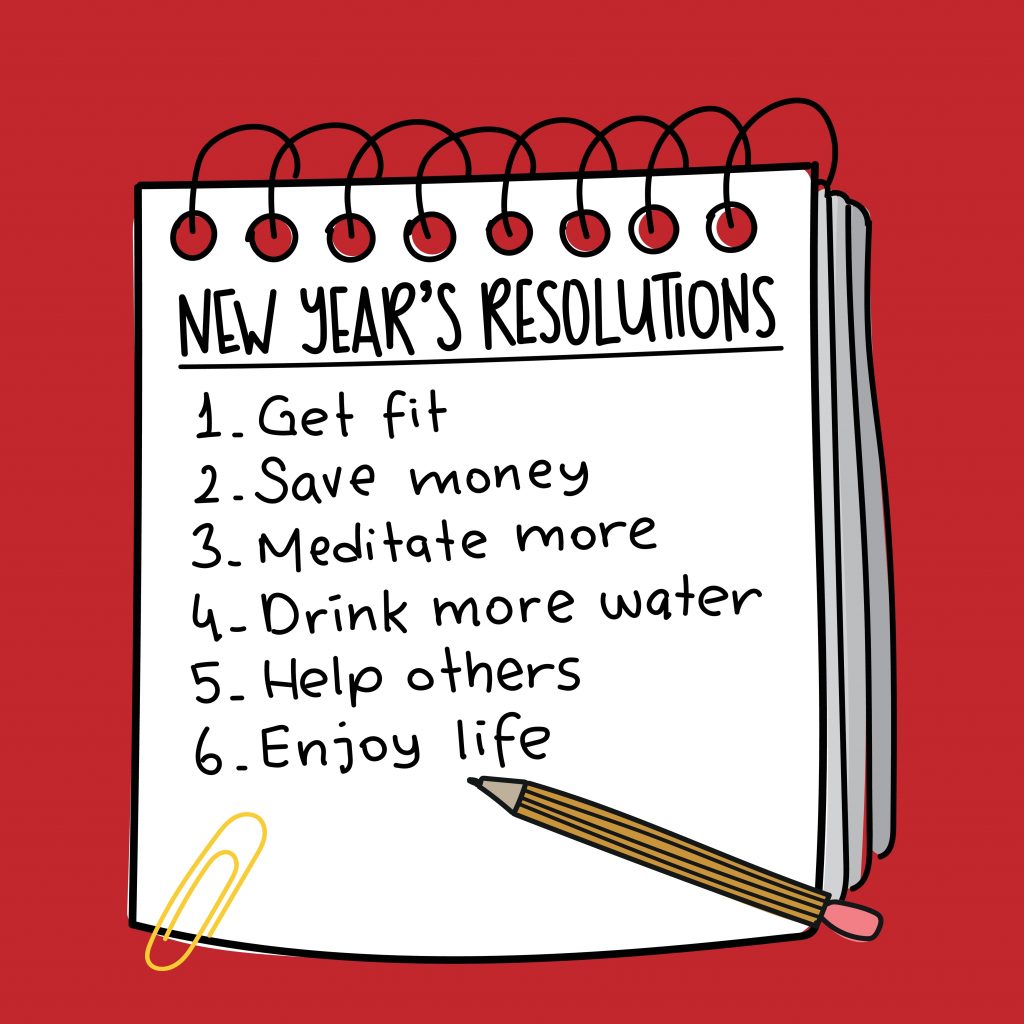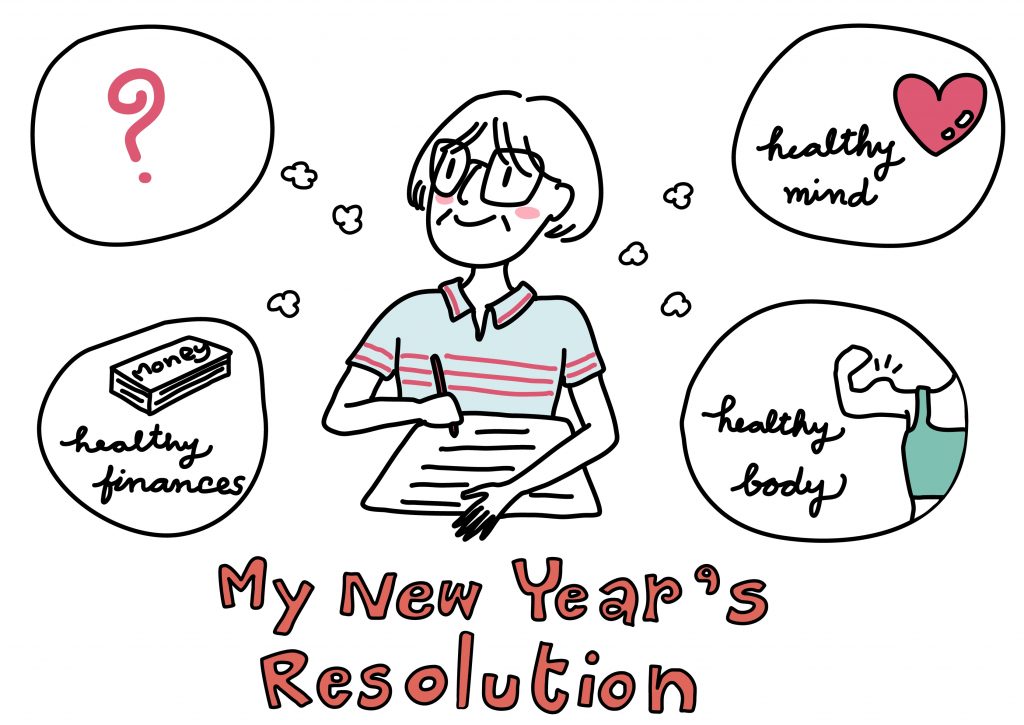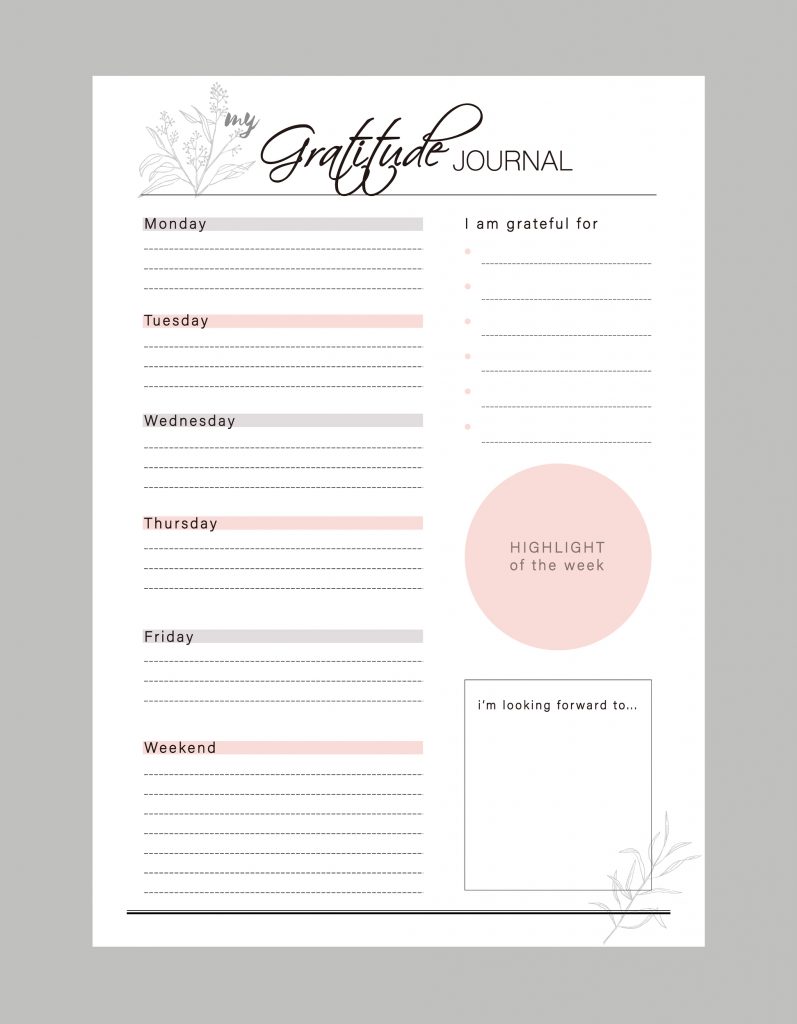It’s that time of the year again, when making New Year resolutions is a part of fashionable conversation.
When you are between 20 and 30, it’s all very well wanting to make a New Year resolutions on quitting smoking, quitting alcohol, exercising and giving up some habit or the other.
Between 30 and 40 these resolutions persist and you add a few more on eating correctly, choosing a spouse, career path, family etc. etc.
Between 40 and 50 drinking becomes a serious problem, diet, weight control, exercising and sex life are on priority and new resolutions are drawn up.
Between 50 and 60 the priorities are all changed, health, money, retirement, family issues, takeover people’s life and the New Year resolution is not a subject on the radar.
So why do we make New Year resolutions? It’s a symbolic fresh start to assess our priorities, values and hopes for the future. It’s also the time when millions make resolutions, setting goals for the future. Some of these resolutions don’t last beyond January, especially the ones to quit drinking, smoking and diet. They are all great ideas and everyone has big plans to transform their lives but the harsh reality is that most people will be unsuccessful. Some of these resolutions are very celebrity inspired, people with seemingly perfect body and perfect lives that are thrust upon us at every opportunity by Media and we are told time and again that these are the ideal people.
We put these people on the pedestal, compare our lives with theirs and find that we are not good enough.

So, when New Year comes, we decide to make an appropriate changes to mimic their life style and appearances, our reasoning is built on this false notion of perfection and Media messages that encourage us to be people we are not. We don’t consider what we want and what is important to us and neither do we have a solid reason to get on particular diet or an exercise plan. After a few weeks of trying to keep up this façade, we cave in and get back to our old ways.
When you are older and wiser you let go of the idea of perfection, it’s an illusion, a fictional story that has been made up. The perfect celebrity body has been photo shopped and the apparently perfect lifestyle, still has struggles and issues for sure. We see a warped view of what’s really going on, we get a neatly packaged narrative as opposed to the rough edge reality. As we get wiser, we understand, who we are and embrace our imperfections. We make a few changes and become better versions for ourselves and not waste time trying to be a second rate version of someone else. It’s okay not to be perfect, it means you are human.
At 60 our needs and requirements change completely, we all have our values, things that are important to us. For some of us it is health and family. For others it is wealth and business. You are at a stage, when you value your family and friends above all. They come first and even before your own needs. Recently you have started to experience a few health problems and you figure out that you should make a few changes to be a bit healthier and you don’t need a New Year resolution to decide on these changes. None of us has an exact same value system as another, and our values can evolve and change throughout our lives.
Sometimes, we get so disconnected from ourselves, we forget what we really care about and at this stage the Doctor probably asks questions about how you spend your time, how do you fill your space, are you reasonably organised and inspired. What would you do if money was not an issue, when you are clear what you stand for, you can than relate the changes you want to make to your values, your life and increase your chances of success.

Again let’s look at a person whose top of priorities is family but they also want to exercise regularly for their own health instead of setting the goal with sole purpose of being healthier. They link these goals with other family priorities. Sometimes, family issues do not go the way you want them to be or as per your plan and you fail to meet a goal and you experience a hit your self-confidence and may blame yourself for what you’re perceived as failure, emotional reappraisal can help you find a new route. Once you set a goal and discover that it’s not a good fit, you don’t have to cling to it. Macro goals are larger overall goals and micro goals are smaller goals and more immediate. We find ways on what we need to do to achieve these goals rather than focusing on the goal itself.

I am a big fan of a gratitude journal, two bouts of COVID helped write this journal. Thankful for all the good things that happened to me, I keep making weekly resolutions on exercising, losing weight and connecting with the family. To change any goal into New Year resolutions is a recipe for disaster. When you are young you want a magic wand or a special pill that will take you from where you are right now to where you want to be. We want that quick fix for better or worse. Things rarely work like that. For most of us lifelong habits that have been ingrained over the years are not easy to drop. This habit change takes a lot of work, whether it’s your relationship with alcohol, cigarettes or weight loss, take it easy, instead of looking for quick fix and making big jumps. Be patient, commit to the long haul and build gradually and don’t forget to enjoy the journey. Nothing sums it up better than George Michael’s immortal song “Last Christmas I gave you my heart and the very next day you gave it away”
Happy New Year








